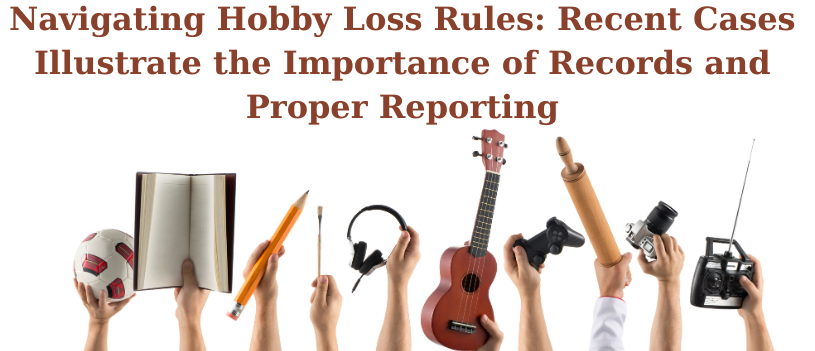Proper record-keeping, applying business-like practices, and accurate reporting are paramount to navigating the fine line between enjoying personal interests and running a legitimate business for tax purposes.
In a recent analysis of three tax cases, the joining of personal hobbies and business expenses is explored, illuminating the importance of proper record-keeping and accurate reporting. The following cases involve individuals attempting to claim deductions for activities that blur the lines between personal interests and legitimate businesses.
High-Earner Hobby (Sherman): A doctor with a substantial income attempted to designate his music-related website, “Songswell,” as a business, aiming to deduct significant expenses. However, due to a lack of records, poor business practices, and zero income from the venture, the Tax Court rejected the claim, emphasizing the need for business-like operations and tangible income.
A vanity website with zero sales over multiple years is unlikely to qualify as a business.
Retirement Hobby (Swanson): A retiree in Alaska sought to offset expenses from his fishing charter business, “Happy Jack Charters,” against his retirement income. While he had some income and kept receipts, the court found his haphazard record-keeping and failure to use records to improve profitability fatal to his claim. The lesson here is that simply having income and receipts is not enough; one must operate the activity like a business.
Keeping records is essential, but it’s equally important to use records to improve profitability and actively control expenses.
Hobby-Business Mash-Up (Carson): This case involves a unique situation where ranching and rodeo activities were intermingled on the same tax schedule. While the IRS initially misanalyzed the return, the court acknowledged the meticulous record-keeping of the taxpayers. The bottom line suggests that despite the unconventional reporting, the mismatch did not significantly impact the overall tax liabilities.
While comingling hobby and business activities on the same schedule is generally not advisable, meticulous record-keeping may help mitigate the impact, especially if the core business activity is legitimate.
In conclusion, these cases highlight the challenges individuals face when attempting to convert personal hobbies into deductible business expenses. Proper record-keeping, adherence to business-like practices, and accurate reporting are crucial to navigating the fine line between enjoying personal interests and running a legitimate business for tax purposes.
